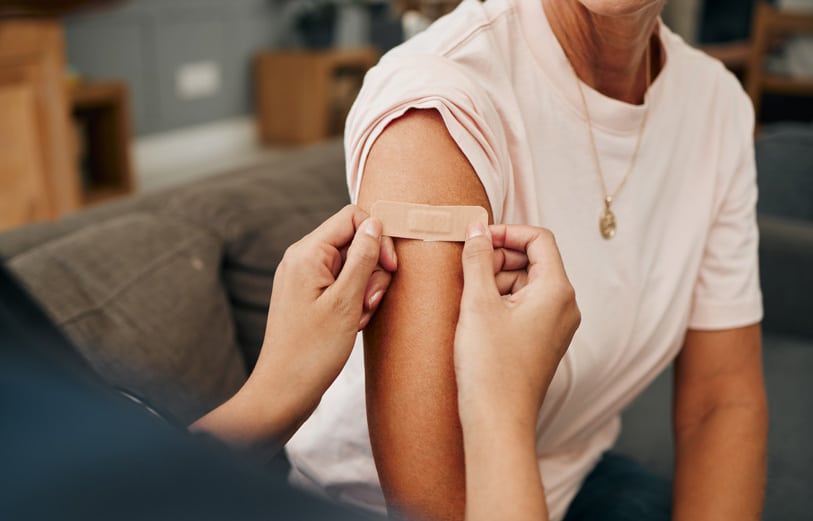COVID-19 is Endemic: What It Means for People in Our Communities

How will we continue to live with and manage the still-circulating COVID-19 virus?
What does the term “endemic” mean?
COVID-19 is endemic. The term "endemic" may sound awful, but it isn't. In fact, compared to a pandemic disease, an endemic phase can reflect a significant step of progress.
A pandemic is a global disease outbreak. It can spread and negatively impact large numbers of people across many countries. An endemic is a disease or condition in a specific population or geographic area that is typically more stable and predictable in its spread.
What is the public health status of COVID-19?
In May 2023, the World Health Organization (WHO) declared COVID-19 an international endemic. This upgraded classification was based on fewer reported deaths than in previous periods and improved population immunity due to vaccines and recent infections.
More than a year later, COVID-19 remains endemic in the United States. As a result, we must now live with and mitigate its presence in our population.
Similarly, influenza is endemic in the United States and many other countries. Thankfully, we've learned to manage influenza through public education and awareness, better health hygiene, vaccinations, and additional healthcare interventions when necessary.
What does endemic COVID-19 mean for our residents and communities?
As an endemic disease, our residents should expect that COVID-19 will continue to circulate in our population. Fortunately, it no longer causes the large-scale disruptions we saw during the height of the pandemic. However, as long as the virus is present, people remain at risk of infection and illness.
Since COVID-19 is endemic, learning to live with it requires us to accept responsibility for protecting ourselves, those we love, and our communities.
What can I do?
Everyone can implement and benefit from these five efforts:
- Remain informed.
The Moultrie County Health Department (MCHD) encourages all residents to stay informed about the spread of COVID-19 and other viruses in their social circles and communities. This is especially important during seasons when the spread of respiratory illnesses is more common. - Routinely practice good health hygiene.
Continue frequent hand washing or use hand sanitizer when necessary. Cover your mouth and nose with a tissue or your elbow when you cough or sneeze. Distance or protect yourself from others in crowded or poorly ventilated areas. - Monitor your health.
If you feel sick, stay away from others and consult with your healthcare provider.Self-isolation when symptomatic, early diagnosis, and proper treatment can support your recovery. These actions also help reduce the spread of COVID-19 and many other illnesses. - Stay up-to-date on vaccines.
If you are an individual for whom vaccination is recommended, remain current with COVID-19 immunizations. You can consult with your physician or local health department regarding the latest COVID-19 vaccine recommendations and availability. - Protect those at greater risk.
There are those in our communities who are more susceptible to severe illness caused by respiratory viruses. These folks generally include individuals over 65 years, infants, pregnant women, and young children. They also include those with weakened immune systems and chronic health conditions.
The Moultrie County Health Department (MCHD) encourages everyone to do their part and take precautions to protect those most at risk for respiratory illnesses, including COVID-19.
We can move forward together.
COVID-19 is endemic. While it may feel like a return to normal, we must remain aware and proactive in our health practices. By doing so, we can help our communities thrive as we continue to live with and manage COVID-19.
Your health and safety is our top priority. The MCHD remains dedicated to supporting you and everyone in Moultrie County with the latest information and resources, including vaccines.
Let’s continue working together to keep ourselves, those we love, and our communities safe, healthy, and strong.

